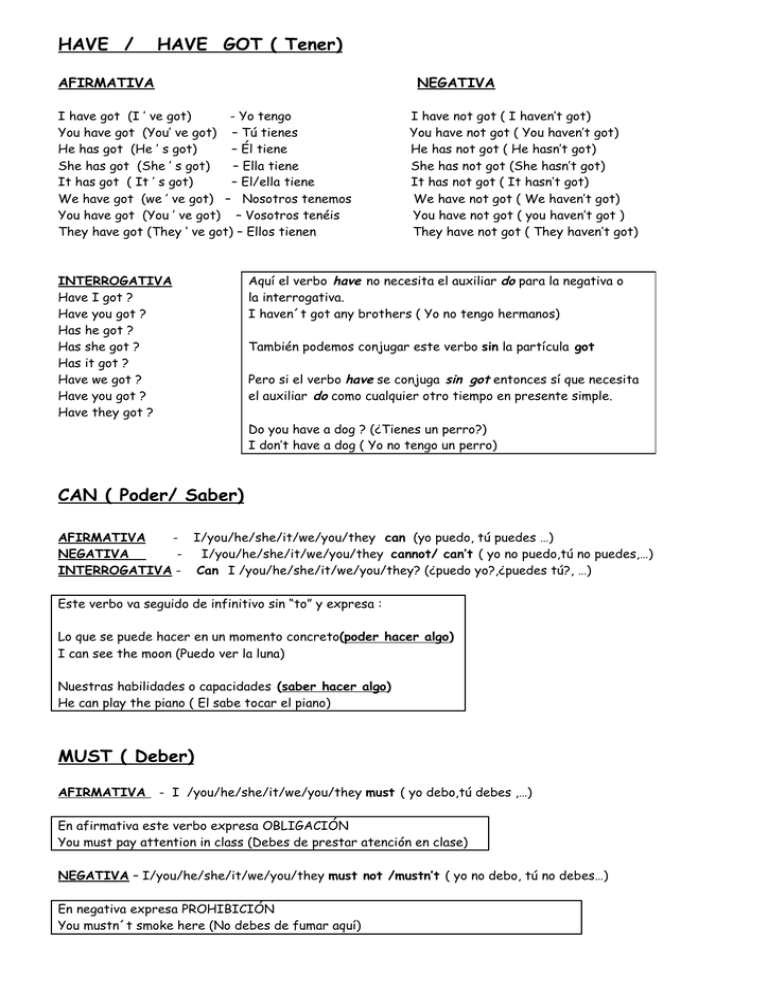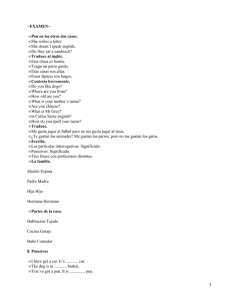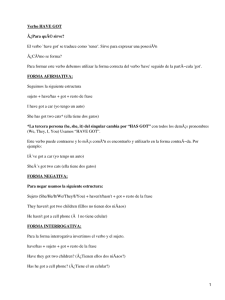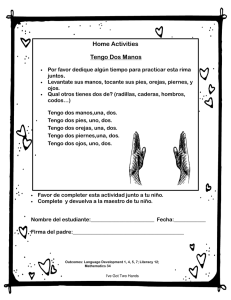HAVE / HAVE GOT ( Tener)
Anuncio

HAVE / HAVE GOT ( Tener) AFIRMATIVA NEGATIVA I have got (I ’ ve got) - Yo tengo You have got (You’ ve got) – Tú tienes He has got (He ’ s got) – Él tiene She has got (She ’ s got) – Ella tiene It has got ( It ’ s got) – El/ella tiene We have got (we ’ ve got) – Nosotros tenemos You have got (You ’ ve got) – Vosotros tenéis They have got (They ‘ ve got) – Ellos tienen INTERROGATIVA Have I got ? Have you got ? Has he got ? Has she got ? Has it got ? Have we got ? Have you got ? Have they got ? I have not got ( I haven’t got) You have not got ( You haven’t got) He has not got ( He hasn’t got) She has not got (She hasn’t got) It has not got ( It hasn’t got) We have not got ( We haven’t got) You have not got ( you haven’t got ) They have not got ( They haven’t got) Aquí el verbo have no necesita el auxiliar do para la negativa o la interrogativa. I haven´t got any brothers ( Yo no tengo hermanos) También podemos conjugar este verbo sin la partícula got Pero si el verbo have se conjuga sin got entonces sí que necesita el auxiliar do como cualquier otro tiempo en presente simple. Do you have a dog ? (¿Tienes un perro?) I don’t have a dog ( Yo no tengo un perro) CAN ( Poder/ Saber) AFIRMATIVA - I/you/he/she/it/we/you/they can (yo puedo, tú puedes …) NEGATIVA - I/you/he/she/it/we/you/they cannot/ can’t ( yo no puedo,tú no puedes,…) INTERROGATIVA - Can I /you/he/she/it/we/you/they? (¿puedo yo?,¿puedes tú?, …) Este verbo va seguido de infinitivo sin “to” y expresa : Lo que se puede hacer en un momento concreto(poder hacer algo) I can see the moon (Puedo ver la luna) Nuestras habilidades o capacidades (saber hacer algo) He can play the piano ( El sabe tocar el piano) MUST ( Deber) AFIRMATIVA - I /you/he/she/it/we/you/they must ( yo debo,tú debes ,…) En afirmativa este verbo expresa OBLIGACIÓN You must pay attention in class (Debes de prestar atención en clase) NEGATIVA – I/you/he/she/it/we/you/they must not /mustn’t ( yo no debo, tú no debes…) En negativa expresa PROHIBICIÓN You mustn´t smoke here (No debes de fumar aquí)


